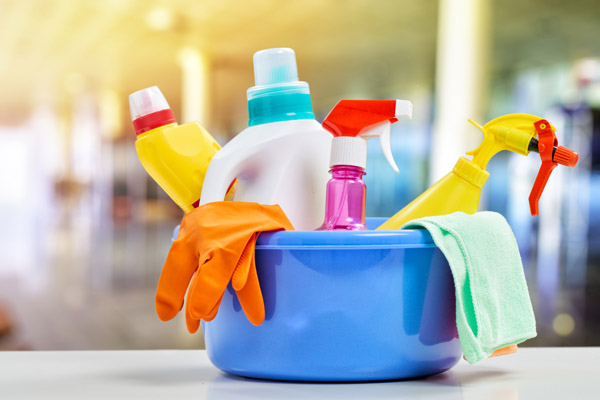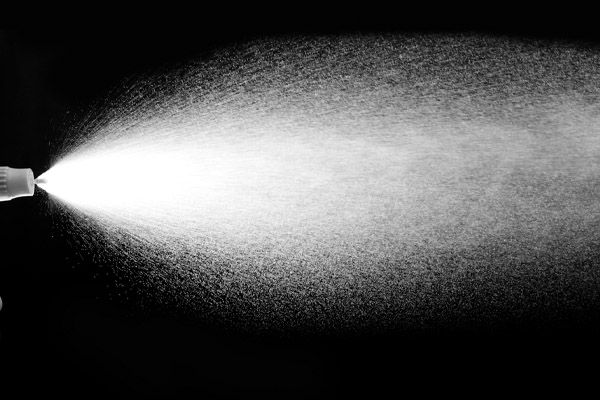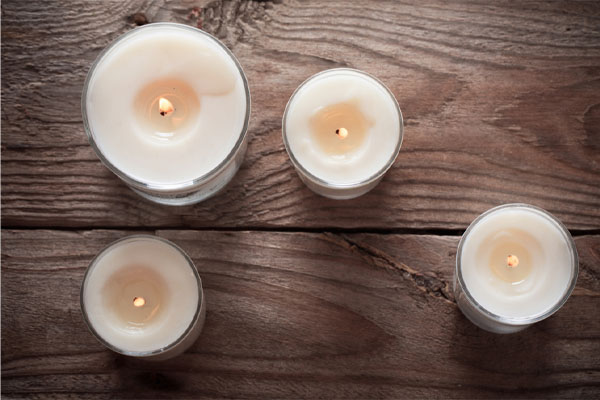6 Common Household Products That Pollute Your Home’s Air

Regardless of how clean you keep your home, you can always make it cleaner and safer. You may have never thought about improving your indoor air quality, so now is a good time to look into some household products you are using that are doing more harm than good in your home. It may be surprising to some homeowners, but many products that have been trusted for many years may not be as safe to use as you thought. This article includes how several common household products can significantly lower indoor air quality and what you can do about this indoor air pollution issue.
Related Article: What Do Heating Oil Additives Do?
What Is Indoor Air Quality?
Indoor air quality (IAQ) refers to the condition of the air inside or around a structure, like a commercial building or a residential home. It is linked to the health and comfort of the structure’s occupants. Indoor air is safer and easier to breathe in when you have good indoor air quality.
IAQ is a significant concern for any home, especially if there are elderly, young children, or immuno-compromised individuals living in it. Indoor air with high moisture and/or pollutant levels may cause a higher risk of health issues like respiratory problems and allergies. This is the reason homes and commercial buildings must meet indoor air quality standards.
Learning how pollutants get inside your home can help you determine how to eliminate indoor air quality issues. After all, you may be using household products that significantly reduce the indoor air’s cleanliness.
Related Article: Can I Put Diesel Fuel in My Home Heating Oil Tank?
Household Products That Affect IAQ
Here are six household products that impact your indoor air quality:
Cleaning Products

Many commercial cleaning products are made of chemicals that can harm our health and the environment. Cleaning supplies may be formulated using ammonia, bleach, volatile organic compounds (VOCs), and strong synthetic fragrances that lower your home’s indoor air quality. They can also result in a strong reaction, especially if other chemicals are mixed with them.
Solution: Determine how you can naturally enhance indoor air quality. Choose cleaning products formulated using environmentally-friendly ingredients. You should also keep away from products containing harmful chemicals. If you can, learn how to utilize baking soda, vinegar, and other natural cleaners.
Related Article: Oil Tank Condensation: What You Ought To Be Aware Of
Paint
If you smell fresh paint, you are likely breathing in particles that are unsafe for your health. Many of the paints that are sold and used contain VOCs, which have carbon compounds that can easily become vapor. When these mix with the air, they react with other elements and generate ozone, and this can increase air pollution. This pollution you breathe in is because the paint will continue to release VOCs into the air as it dries.
Solution: Choose a low-VOC paint to keep your indoor air clean. It is best that you go out of your way to get zero-VOC paint. Your lungs will be grateful to you for it.
Related Article: Why Use A Ductless Air Conditioner For An Oil-Heated Home Without Ducts?
Aerosol Sprays

Many products come as aerosol sprays, like perfumes, hairspray and treatments, shaving cream, and deodorant. Cooking oil also comes in aerosol spray cans. These are also little problematic due to the inclusion of chemicals, like artificial flavoring, propellants (such as butane, propane, and isobutane), and a type of silicone to keep the oil from foaming.
Aerosol sprays are designed to propel liquid droplets through the air. It is considered unsafe to use if this liquid has harmful ingredients. Aerosol sprays were exposed more than three decades ago to be polluting substances. They are also considered to be an environmental threat.
Solution: Limit the use of aerosol sprays to prevent irritants in the air. Avoid them entirely if possible. Many products come in other forms, and these can be used safely with little to no effects on your home’s indoor air quality.
Air Fresheners
We have all used air fresheners before to eliminate a bad smell. However, are you aware these cans contain harmful ingredients? Some air fresheners can produce over 100 different types of chemicals, many of which are toxic. These chemicals can react with other elements in the indoor air and become more harmful compounds. Some people may even sneeze or cough from inhaling a small amount of air freshener. It can also cause redness, irritation, and itchiness if the mist comes in contact with the skin.
It may seem contradictory that something that supposedly “freshens” the air can actually be the cause of indoor air quality problems. However, this shouldn’t come as a surprise, as air fresheners contain fragrance, propellants, and different additives. All of these contribute to the reduction of indoor air quality.
Solution: Use natural ingredients to eliminate bad odor and improve indoor air quality.
Related Article: How Much Heating Oil Will I Use A Day?
Candles

Candles may seem harmless, but they still pose a health risk. Fortunately, only candles made from paraffin wax are bad. This is because paraffin is a by-product of coal oil, shale, or petroleum. Candles are likely harmless on their own. The problem is when they are burnt, they can release carcinogenic compounds into the air. According to one study, paraffin wax candles emit fumes related to asthma and lung cancer.
Solution: Avoid using paraffin wax regularly. Opt for candles that use natural ingredients like beeswax if you use candles regularly.
Related Article: Carbon Monoxide Safety Reminders For This Heating Season
Dry Cleaning
Dry cleaning utilizes a kind of organic solvent for stains, dirt, and unpleasant odors. These types of solutions may be harmful, especially to persons with pre-existing health conditions in the heart, lungs, liver, or kidneys. The most problematic dry-cleaning ingredient is a type of VOC called PERC (perchloroethylene). Prolonged exposure to this chemical is especially worrisome.
Solution: If you cannot avoid dry cleaning, unwrap dry-cleaned clothes outside and leave them there for several minutes so the harmful chemicals are released outside. Ensure that you get your clothes dry cleaned in a reputable dry cleaning business, and don’t hesitate to complain if there is a strong smell coming from your dry-cleaned clothes.
Conclusion
Managing indoor air quality properly includes being actively aware of the types of products that could lead to indoor air quality issues. Keeping your indoor air safe is good for your health and safety. It is also necessary for the proper maintenance of the environment. Doing the small steps listed in this article can make a huge difference. Therefore, you should actively ensure that you can keep your home and its occupants safe and comfortable.
Call R.F. Ohl for Solutions to Ensuring Comfort in Your Home

For reliable and affordably-priced heating oil, call R.F. Ohl. You can count on our high-quality, discount heating oil deliveries to be fast and friendly. We also offer efficient heating solutions for your family and home.
The expert technicians on our team are equipped to handle any HVAC repair or maintenance. Contact us to hear about our various services. We can assist by answering your questions and concerns. For more information about our efficient HVAC services or oil deliveries, call R.F. Ohl today!
Call us today to learn more. Click here or call us at (610) 377-1098 to contact us today! Click the link to view our service area.
Posted in HVAC Service • Tags:
